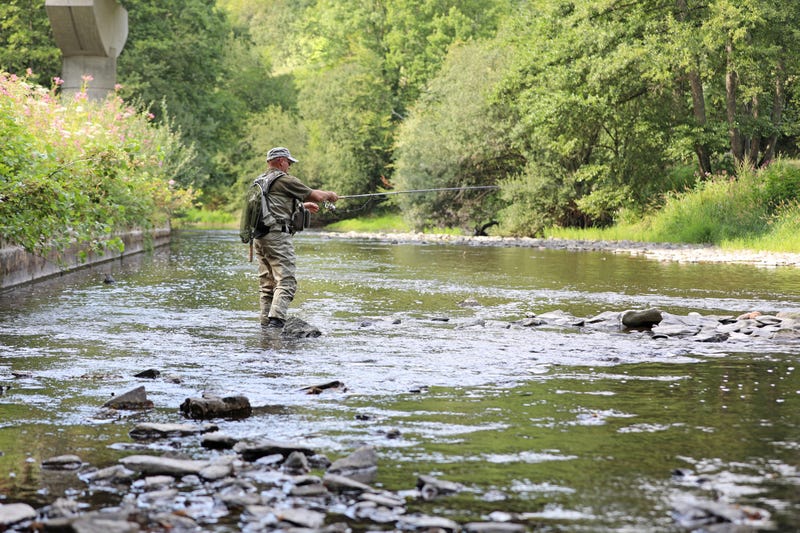
(WWJ) - For many, Michigan’s fishing season is a long-held tradition, and the DNR is offering those ready to head to the state’s rivers and streams tips to make it a great one.
“Make the trip more memorable by inviting a friend or loved one to take in a new experience or maybe to relive glory days,” the website said. “Here’s to good fishing, good company and lots of cherished memories made this season!”
Trout season kicks off on Saturday, and officials say it’s important to know the fishing regulations before going out. The regulations can be downloaded through the app, which makes them available without phone reception. Physical copies can be picked up for free at the same locations fishing licenses are sold, or printed from michigan.gov/dnrregs.
Regulation maps that have been color-coded are also available online.
Fishing licenses for 2024 went on sale April 1. They can be purchased at michigan.gov/dnrlicenses, at DNR customer service centers or at many stores, such as Walmart and Meijer. The Michigan DNR Hunt Fish app can also be used to purchase a license. The app includes information such as maps and certificates, according to the DNR website.
People fishing are encouraged to be on the lookout for species that can damage the local ecosystems.
Invasive species are always a concern for the region, especially when traveling from one area to another. The DNR says big concerns for trout streams are didymo, also known as rock snot, and the New Zealand mudsnail. Both can be transported on nets, gear and waders.
Officials say blooms of didymo, an alga that thrives in streams that are low-nutrient and cold, were found in state waters beginning in 2015. Blooms have been found in the St. Marys, Manistee and Boardman rivers.
While New Zealand mudsnails are very small, about an eighth of an inch, they can reach very high densities and “outcompete” native species, which results in fish having a smaller food source, the DNR said.
“New Zealand mudsnail populations are known to be present in the Au Sable, Boardman, Grass, Pere Marquette, Pine and Upper Manistee rivers in Michigan,” the DNR website said. “Mudsnails can survive out of water for several days. Because of their small size, they are easily transported on boats, anchors and fishing gear such as waders and nets.”
The DNR recommends cleaning, draining and drying waders, boots, boats and other gear before moving to another location and between fishing trips to prevent the spread of invasive species.
Using a chemical disinfectant, along with removing mud and debris, is the best way to decontaminate gear. Recommended disinfectants include “Formula 409 Antibacterial All-Purpose Cleaner applied to waders and gear,” according to the website. “Bleach: Apply a solution of one-half cup (4 fluid ounces) bleach to five gallons of water and let stand for 20 minutes. Virkon Aquatic: Apply solution of 20 grams per liter of water and let stand for 20 minutes (see manufacturer’s label for additional guidance).”
All disinfectants should be used a safe distance from the water to avoid the chemicals entering the water.
More information can be found at michigan.gov/fishing. Anyone with questions about fishing licenses can call the DNR’s license sales help desk at 517-284-6057.
